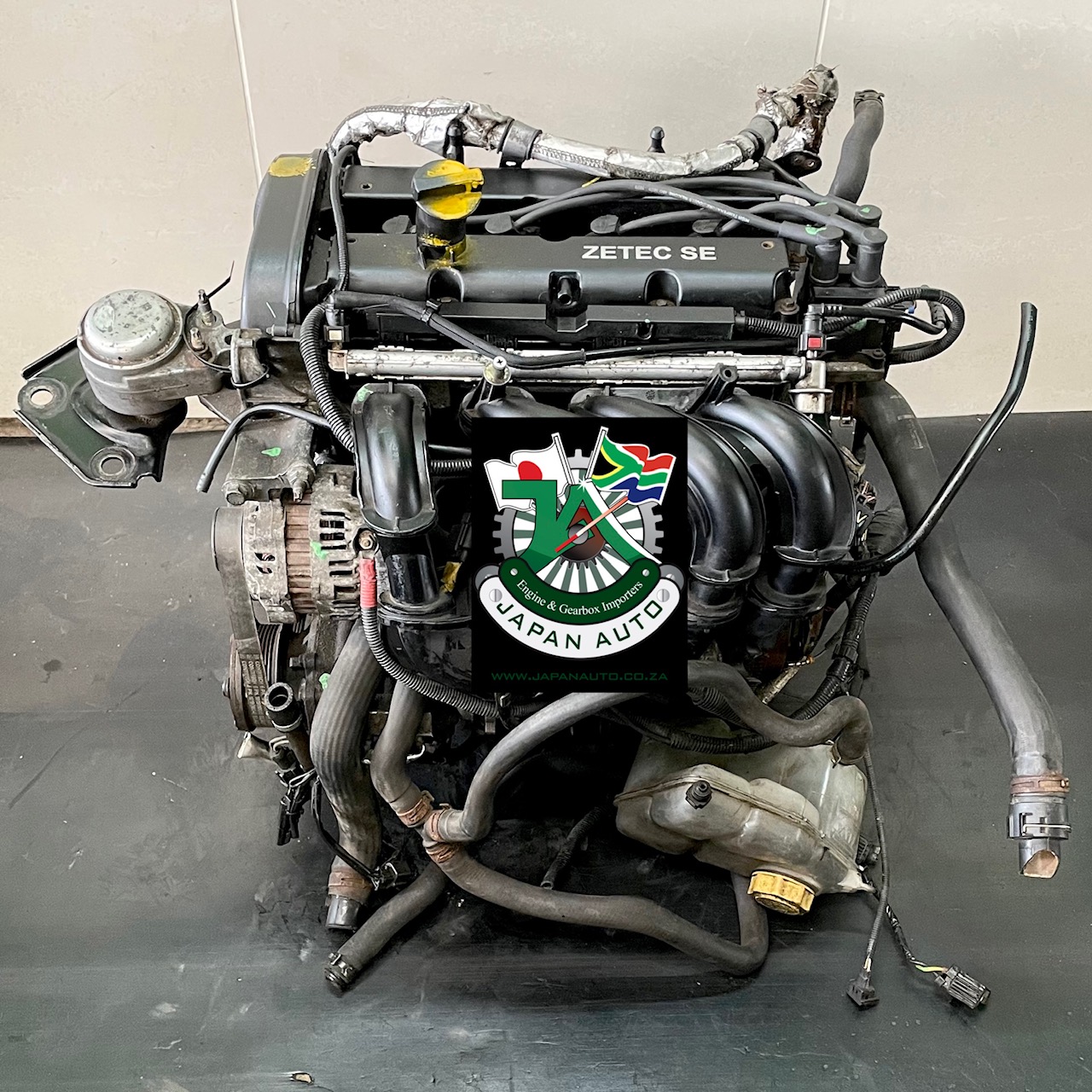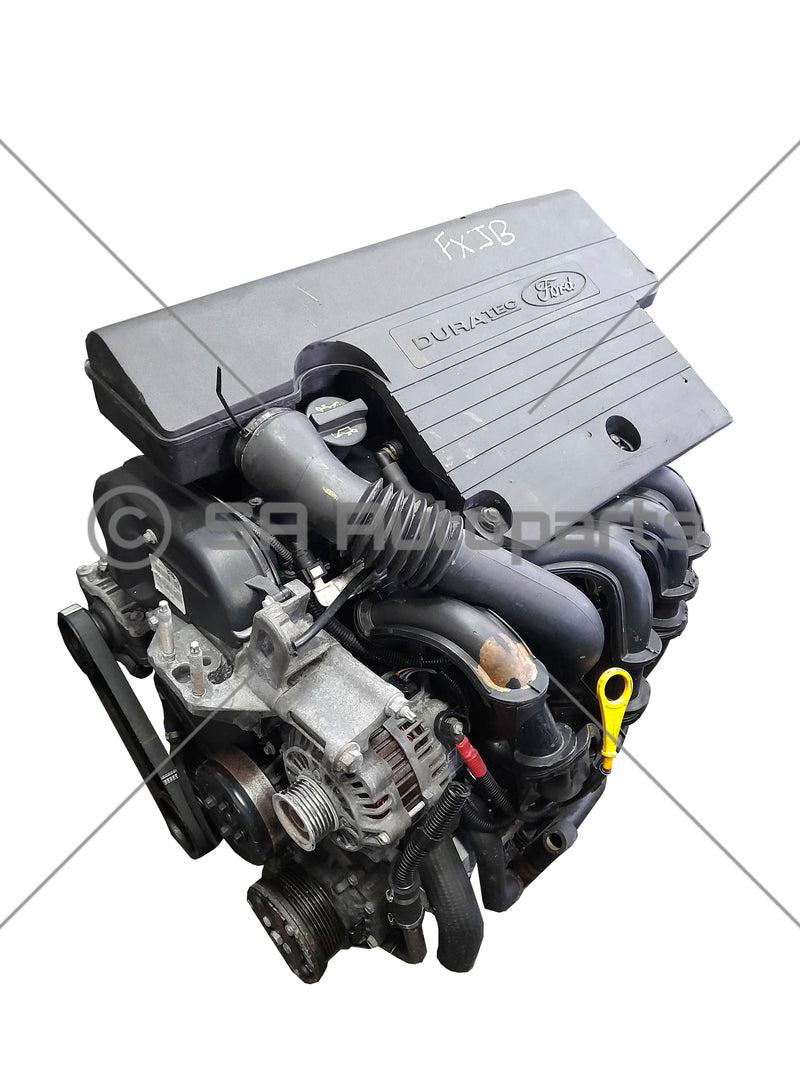How a Well-Maintained Ford Fiesta Engine Improves Vehicle Longevity
How a Well-Maintained Ford Fiesta Engine Improves Vehicle Longevity
Blog Article
The Future of Engines: Innovations Driving Sustainable Power Solutions
As the automotive industry navigates the necessary transition towards sustainability, the future of engines is progressively defined by groundbreaking technologies. Electric engine advancements, alongside appealing advancements in hydrogen gas cells and biofuels, are reshaping the landscape of power services.
Electric Engine Advancement
The development of electrical engine growths signifies a pivotal change in the auto and aerospace sectors, driven by the urgent requirement for lasting options to fossil gas. This transition is identified by significant advancements in battery technology, power electronic devices, and electric motor layout, which jointly enhance the efficiency and efficiency of electrical engines.
Current advancements have actually caused the development of lighter, a lot more energy-dense batteries, such as lithium-silicon and solid-state batteries, which assure longer arrays and much shorter charging times. Additionally, improvements in electrical motor performance, such as making use of irreversible magnets and progressed cooling down systems, make it possible for electrical engines to operate efficiently under varying conditions. These enhancements not just enhance car efficiency yet likewise add to a decrease in general energy usage.
Furthermore, the integration of innovative software application algorithms has actually enhanced energy monitoring in electric lorries, permitting regenerative braking and anticipating charging approaches. As makers increasingly welcome electric propulsion, the auto and aerospace industries are witnessing a standard shift towards greener technologies. This development not only fulfills regulatory demands yet likewise aligns with customer choices for environmentally friendly transport remedies, solidifying electric engines as a foundation of future sustainable mobility.
Innovations in Biofuels
As the aerospace and auto industries progressively focus on sustainable power sources, improvements in biofuels become a corresponding remedy to electrical engines. Biofuels, derived from natural products such as crops, waste, and algae, provide a cutting-edge opportunity for lowering greenhouse gas exhausts and reliance on fossil fuels.
Current study has concentrated on boosting the efficiency and sustainability of biofuel production. Second-generation biofuels use non-food feedstocks, decreasing competition with food supply and reducing ecological effect. Furthermore, improvements in artificial biology have made it possible for the design of microbes to create biofuels more efficiently, bring about greater returns and reduced manufacturing prices.
In addition, the advancement of drop-in biofuels permits for smooth combination right into existing framework, enabling a smoother change for industries traditionally depending on fossil fuels. ford fiesta engine. These gas can be made use of in present engines without alterations, promoting their fostering across different sectors
Investments in biofuel technology, along with helpful policies, are vital to drive advancement and scalability. As the worldwide community looks for to deal with climate adjustment, biofuels use a practical, immediate remedy that lines up with the overarching goal of sustainability in transport and air travel.
Hydrogen Fuel Cell Modern Technology
A growing variety of companies and scientists are discovering hydrogen fuel cell modern technology as a feasible alternative to standard power resources in transportation and power systems. This innovation converts chemical power from hydrogen right into electrical power through an electrochemical response, with water as the only byproduct, making it an eco friendly alternative.
The core of hydrogen fuel cells is the gas cell stack, where hydrogen particles are divided into protons and electrons. The flow of electrons creates electrical power, while protons relocate with a membrane layer to incorporate with oxygen from the air, developing water. This procedure causes high effectiveness and low exhausts, positioning hydrogen fuel cells as a vital gamer in the transition to sustainable power.
Significant improvements have actually been made in boosting the sturdiness and efficiency of gas cells, along with minimizing costs through ingenious manufacturing methods. Furthermore, the growth of hydrogen production approaches, such as electrolysis powered by renewable resource resources, enhances the sustainability of the overall system. As facilities for hydrogen refueling expands and manufacturing techniques come to be extra efficient, hydrogen fuel cell technology holds excellent assurance for decarbonizing numerous sectors, including heavy-duty transport and stationary power generation.
Hybrid Solutions and Their Effect
Hybrid systems stand for a considerable evolution in sustainable engine modern technology, combining typical interior combustion engines with electric propulsion to maximize energy effectiveness and decrease emissions (ford fiesta engine). This twin strategy enables automobiles to utilize both power sources, making it possible for higher adaptability in power consumption and minimizing reliance on fossil gas

In enhancement to environmental advantages, hybrid systems supply consumers a sensible change towards fully electrical cars. They ease variety stress and anxiety by combining the benefit of gasoline with the benefits of electric propulsion, making them an eye-catching option for about his a larger audience.
The Function of AI in Engine Style
Leveraging innovative formulas and device knowing methods, the auto industry is progressively incorporating expert system (AI) right into engine layout processes. AI improves the effectiveness and performance of design by examining substantial datasets to identify optimal setups and efficiency parameters. This ability permits engineers to imitate various operating conditions and forecast engine behavior under several scenarios, substantially lowering the time and expense related to standard prototyping techniques.
Additionally, AI promotes the development of innovative materials and burning processes tailored for sustainability. By enhancing fuel effectiveness and decreasing exhausts, AI-driven layouts straighten with global initiatives targeted at reducing the carbon footprint of auto engines. Artificial intelligence algorithms can also forecast upkeep requirements, resulting in improved integrity and longevity of engine parts.
Moreover, AI is important in the combination of electrification modern technologies, such as hybrid systems, where it can optimize battery management and energy healing site web processes. As the market moves towards more lasting power options, the function of AI in engine style ends up being progressively important, driving innovation and boosting the efficiency of future engines. Ultimately, the cooperation between AI and engine design proclaims a new era of smarter, cleaner, and extra effective automotive technologies.

Final Thought
In conclusion, the future of engines is being shaped by a merging of ingenious innovations that focus on sustainability. Electric engine developments, biofuel developments, hydrogen gas cells, and crossbreed systems collectively add to a substantial decrease in emissions and environmental effect.
Electric engine developments, alongside promising growths in hydrogen fuel cells and biofuels, are improving the landscape of power remedies. home Furthermore, improvements in electrical motor performance, such as the usage of permanent magnets and advanced cooling down systems, make it possible for electrical engines to operate effectively under differing conditions. By maximizing gas efficiency and reducing emissions, AI-driven layouts line up with global campaigns aimed at reducing the carbon footprint of auto engines. As the market moves in the direction of more lasting power services, the duty of AI in engine style comes to be significantly important, driving technology and improving the performance of future engines. Electric engine advancements, biofuel advancements, hydrogen fuel cells, and hybrid systems jointly contribute to a substantial reduction in exhausts and environmental effect.
Report this page